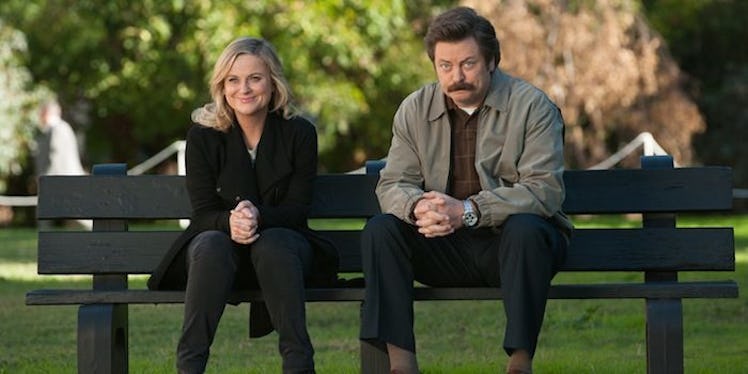
The End Of An Era: How We Will Remember 'Parks And Recreation'
An era ended last night as the world said goodbye to Pawnee, Indiana and "Parks and Recreation" aired its final episode.
"Parks and Rec" was the last reminder of a time when NBC owned comedy. The network's dominance started in the 80s, with shows like "The Cosby Show" and "Cheers," and the baton passed to all-time greats like "Seinfeld" and "Friends."
The ratings sharply dropped for the next batch of classics as the landscape of broadcast television changed, but "The Office" and then "Parks and Rec" kept the title of best comedies on television at NBC — even if the awards said otherwise.
"Parks and Rec" could almost be the child of "The Office." The latter was so critically and commercially praised that struggling NBC looked to further capitalize on it by asking Greg Daniels and Mike Schur to create a spinoff.
The spinoff talk was squashed quickly because no idea was deemed interesting enough. The show became a different animal than "The Office," and was to focus on local politics.
Daniels and Schur did suggest many aspects from their time on "The Office," like the emphasis on a large ensemble, the actors talking directly to the camera and Rashida Jones.
The start of the show was bumpy.
The first season consisted of only six episodes and was put on air late in the broadcast season. The biggest problem was that the show didn’t seem to work.
No comedy is great after six episodes, but the expectations were high for "Parks and Rec," considering the talent involved.
However, the tide turned quickly in the second season.
The show made maybe the quickest jump ever from mediocre to great. Looking back, the show didn’t make drastic changes, but instead, made adjustments to the personal relationships between characters.
Amy Poehler’s Leslie Knope went from the nut case who everyone made fun of to someone everyone gravitated toward.
In the second season, "Parks and Rec" went on an unprecedented run of consecutive great episodes. The show went 30-plus episodes without an even average episode.
All of this creative success was while the show dealt with cast changes, long hiatuses and an unsure future.
While the show was centered on the brilliant Amy Poehler and her great portrayal of Leslie Knope, its supporting cast unquestionably strengthened things.
There were no weak links in the group, from Nick Offerman’s all-time great performance as Ron Swanson or Chris Pratt taking Andy Dwyer from a jerk one-note character to the most innocent and hilarious one on television.
"Parks and Rec" didn’t stop with just having a strong cast. They created, essentially, a live-action Springfield, a reference to the wide-ranging group of characters on "The Simpsons."
The more background characters emerged, the crazier they got. You wanted to visit this city, but you’d be scared to death to ever run into Jean-Ralphio and Mona-Lisa Saperstein.
Among critics and fans, "Parks and Rec" will go down as an all-time favorite, but unfortunately, that never translated into an award or commercial success. The only major award the show ever won was a Golden Globe to Poehler.
Meanwhile, NBC's struggles are a major reason the show was able to survive seven seasons. At its peak, "Parks and Rec" was as funny as any show, but the comedy isn’t what it will be remembered for. Rather, it will be remembered for its heart.
The most memorable moments were the ones that focused on the characters, like Andy and April's impromptu wedding. As great as the finale was, it wasn’t uproariously funny, but more so full of heart. It left us sad that we’ll never get to spend any new moments with these people.
We may not be seeing any more adventures from Leslie Knope, Ron Swanson, Tom Haverford and crew, but the show's legacy will carry on with the cast members, who are off to great things.
Pratt is a huge movie star, Aziz Ansari is selling out Madison Square Garden and the rest of the cast members are sure to have success, too.
For the fans of "Parks and Rec," watching this show was our version of "treat yo’ self."